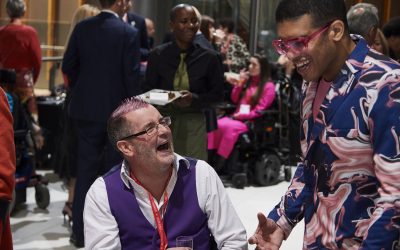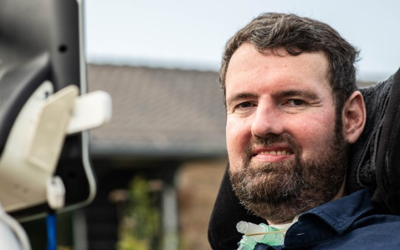Meet Pareisse Wilson
We caught up with Disability Power 100 nominee Pareisse to find out more about her work in the STEM field and announce our new 2022 STEM category.
Congratulations on being nominated for the Disability Power 100 this year, how did it feel when you found out?
I was quite overwhelmed to be honest, I wasn’t expecting it in the slightest! The lady who nominated me, Jenny, she just dropped it into general chit-chat that she had put me forward for this nomination – I’m truly humbled and privileged to have been nominated so I was delighted.
Up until now we haven’t had a STEM category, but we know there are many individuals like yourself doing fantastic work in the sector who deserve recognition. Therefore, to ensure that the Disability Power 100 list is up to date and relevant, we’re excited to say that there will be a STEM category in 2022! Can you tell us a little more about the work you do?
That is so exciting, just great to hear about the new STEM category! Interestingly I didn’t read any STEM subjects at university; my background is in human rights and justice law and politics and international relations. I stumbled into the engineering, built and natural environment sector and what’s great about STEM is that there are so many ways to be a part of the STEM movement without being a specialist!
I’m an inclusive design consultant, I provide advice and insights on inclusive design and accessibility internally and to clients. I think strategically about how to embed inclusive design into programme and projects, conduct accessibility audits and design appraisals of buildings through to the public realm, through to running inclusive design and accessibility training sessions – my job is super varied!
I’m really passionate about inclusion in design as a believe design of the built, natural, and digital environment can either connects people and fosters a spirit of belonging or restrict people with design failures that create boundaries and increase feelings of insecurity. I believe we play a dutiful role in designing products, spaces and places that are accessible to all; this means going beyond disability to consider all human characteristics in design such as age, height, culture, gender identity and much more.
This additional category will open opportunities for so many talented people working in STEM disciplines to be recognised for their contribution to breaking down barriers to enable social mobility.
What advice would you give to a young person with a disability?
Disability doesn’t define you – challenge any barriers that are preventing you from being able to excel, it’s your right! Keep championing your passion and if one door doesn’t open, try other doors – one of them will open for you to thrive. Your conditions allow you to see the world with new and different perspectives, your unique perspectives, like anyone else, are actually your superpowers; identify and understand those strengths and leverage them because you have a place at the table, and we need your contribution as much as everyone else’s.
What has been your highlight of 2021 and what are your plans for 2022?
One of my highlights has been becoming an inclusive design consultant, advising on a diverse range of projects to shape environments that are more accessible, equitable and inclusive. I hope to continue working with my peers and the wider industry in shaping inclusive design best-practice and change initiatives.




